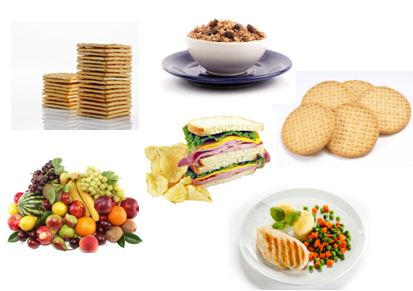The Irish Heart Foundation advises that the body needs no more than 4 grams of salt each day and an acceptable maximum level is 6 grams. Children should be on the much smaller amounts of less than 4 grams per day, and younger children should eat only the minimum amount of salt.
Sadly, in Ireland, consumption of salt is often way beyond the typical RDA, and most people consume approximately 10g. So do you actually know how much salt you are having every day? If you take a very typical food intake in one day, without including excessive amounts of proceed foods and snacks, it's easy to see how one can very easily go above the 6g RDA.

Breakfast
Bowl of Muesli 0.08g
Fresh fruit (2 pieces) 0.02g
Lunch
Ham and cheese sandwich (with butter & mayonnaise) 4.2g
25g packet of crisps 0.49g
3 Plain biscuits 0.3g
Dinner
Homemade garlic lime chicken 1.44g
2 medium sized potatoes (no butter) 0.02g
3 portions of fresh vegetables 0.03g
Snack
Crackers x 4 with butter - 0.63g
Total salt intake: 7.21g
And this is before you add a generous sprinkling at the dinner table.
Consuming too much salt is linked ot high blood pressure, especially as you get older. The Irish Heart Foundation have noted that if everyone in Ireland reduced their salt intake by a half a teaspoon (3 grams per day) this would prevent approximately 900 deaths each year from stroke and heart attack.
Women consuming too much salt are likely to retain fluid and will have a tendency to ankle swelling and feeling bloated. These symptoms can be reduced if less salt is consumed.





